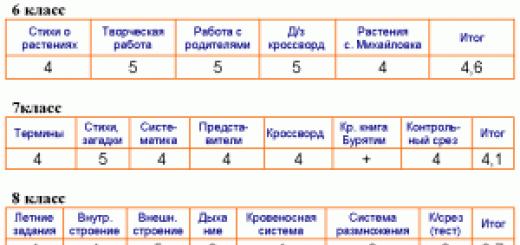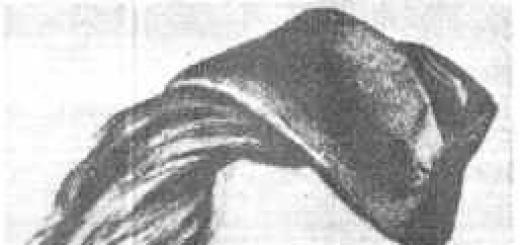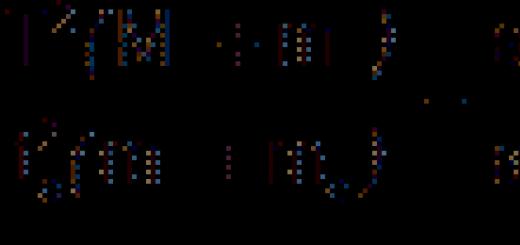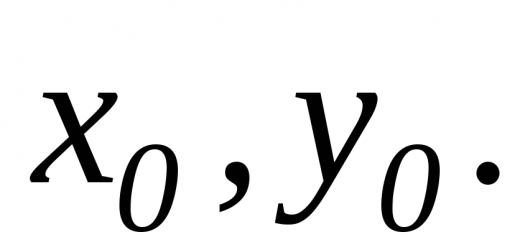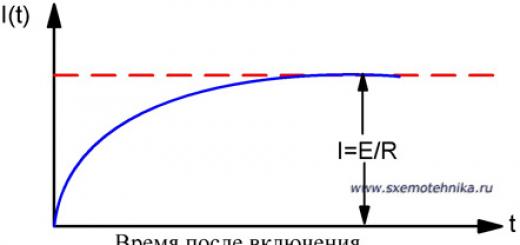BEFORE. Ozhegov's explanatory dictionary. S.I. Ozhegov, N.Yu. Shvedova. 1949 1992 … Ozhegov's Explanatory Dictionary
before- conjunction Syntactic constructions starting with the conjunction “before” are highlighted with punctuation marks (commas). In this case, the first punctuation mark is often placed before the compound conjunction, and not between its parts (before the word “than”). About the factors influencing... ... Dictionary-reference book on punctuation
before- Unism. Before, until (indicates that the time of action in the main clause precedes the time of action in the subordinate clause). Someone put the letter down... and disappeared before Marya Kirilovna had time to come to her senses. (A. Pushkin.) A year and a half... ... Educational phraseological dictionary
before- see before; (book) ... Dictionary of many expressions
Conjunction Used when joining a subordinate part of a complex sentence, the action of which follows the action of the main part; before, before. Ephraim's explanatory dictionary. T. F. Efremova. 2000... Modern explanatory dictionary of the Russian language by Efremova
before- union... Spelling dictionary of the Russian language
before- Temporal conditionality... Dictionary of Russian synonyms
Before we part... Wikipedia
From the “Statement of the Editorial Board of Iskra” (1900), written by V. I. Lenin (1870 1924). In the original: “Before we unite, and in order to unite, we must first resolutely and definitely disengage.” The meaning of the expression: the unification will be... ... Dictionary of popular words and expressions
- “BEFORE WE LEAVE”, USSR, MOSFILM, 1984, color, 84 min. Melodrama. During the war, a small Far Eastern airport was built to ferry aircraft along the Alaska-Russia front route. Soon an American plane crashed in these parts... Encyclopedia of Cinema
Before starting any business, you need to sharpen the tool- Every business requires preliminary preparation, choice of means and method of implementing the plan... Dictionary of folk phraseology
Books
- Before you die, Anna Babyashkina. "Before I Die" is a semi-fiction novel about those who are 30-40 years old today. More precisely, about what these people will become at an advanced age. The action takes place in 2039 in the Moscow region...
- Before You Die, Babyashkina A.. “Before You Die” is a semi-fiction novel about those who are 30-40 years old today. More precisely, about what these people will become at an advanced age. The action takes place in 2039 in the Moscow region...
Recently, a cheat sheet on the Russian language spread across LJ. I took it from here: http://natalyushko.livejournal.com/533497.html
However, there were errors and inaccuracies.
I corrected what I noticed, plus added information from my notebook and other sources.
Use it. =)
If you notice any errors or have any additions, please write about it.
Editor's note. Part 1
Commas, punctuation
“In addition” is ALWAYS highlighted with commas (both at the beginning and in the middle of a sentence).
“Most likely” in the meaning of “very likely, most likely” is separated by commas (Of course, it’s all because of the cognac and the steam room, otherwise he would most likely have remained silent.).
In the meaning of “quickest” - NO (This is the most likely way to get to the house.).
"Quicker". If it means “better, more willingly”, then WITHOUT commas. For example: “She would rather die than betray him.” Also WITHOUT commas, if it means “better to say.” For example: “making some remark or rather an exclamation.”
BUT! A comma is needed if this is an introductory word expressing the author’s assessment of the degree of reliability of this statement in relation to the previous one (in the meaning of “most likely” or “most likely”). For example: “He cannot be called a smart person - rather, he is on his own mind.”
“Of course”, “of course” - the word of course is NOT separated by commas at the beginning of the response, pronounced in a tone of confidence, conviction: Of course it is!
In other cases, a comma is REQUIRED.
The expressions “in general”, “in general” are SEPARATED in the meaning “in short, in a word”, then they are introductory.
“First of all” stands out as introductory in the meaning of “first of all” (First of all, he is a fairly capable person).
These words do NOT stand out in the meaning of “first, first” (First of all, you need to contact a specialist).
A comma after “a”, “but”, etc. is NOT needed: “But first of all, I want to say.”
When clarifying, the entire phrase is highlighted: “There is hope that these proposals, primarily from the Ministry of Finance, will not be accepted or will be changed.”
“at least”, “at least” - are isolated only when inverted: “This issue was discussed twice, at least.”
“in turn” - is not separated by a comma in the meaning “for its part”, “in response, when it was the turn.” And the quality of introductory ones is isolated.
“literally” - not introductory, not separated by commas
"Hence". If the meaning is “therefore, therefore, it means,” then commas are needed. For example: “So you, therefore, are our neighbors.”
BUT! If it means “therefore, as a result of this, based on the fact that,” then the comma is needed only on the left. For example: “I found a job, therefore we will have more money”; “You are angry, therefore you are wrong”; “You can’t bake a cake, so I’ll bake it.”
"Least". If it means “the least”, then without commas. For example: “At least I’ll wash the dishes”; “He made at least a dozen mistakes.”
BUT! If in the meaning of comparison with something, emotional assessment, then with a comma. For example: “At a minimum, this approach involves control,” “To do this, you need, at a minimum, to understand politics.”
“that is, if”, “especially if” - a comma is usually not needed
“That is” is not an introductory word and is not separated by commas on either side. This is a conjunction, a comma is placed before it (and if in some contexts a comma is placed after it, then for other reasons: for example, to highlight a certain isolated construction or subordinate clause that comes after it).
For example: “There are still five kilometers to the station, that is, an hour’s walk” (a comma is needed), “There are still five kilometers to the station, that is, if you walk slowly, an hour’s walk (a comma after “that is” is placed to highlight the subordinate clause "if you go slowly")
“In any case” are separated by commas as introductory ones if they are used in the meaning “at least”.
“Besides that”, “besides this”, “besides everything (other)”, “besides everything (other)” are isolated as introductory ones.
BUT! “Besides that” is a conjunction, a comma is NOT needed. For example: “In addition to not doing anything himself, he also makes claims against me.”
“Thanks to this”, “thanks to that”, “thanks to that” and “along with that” - a comma is usually not required. Segregation is optional. The presence of a comma is not an error.
“Moreover” - WITHOUT a comma.
“Especially when”, “especially since”, “especially if”, etc. — a comma is needed before “even more so.” For example: “Such arguments are hardly needed, especially since this is a false statement”, “especially if it is meant”, “rest, especially since a lot of work awaits you”, “you shouldn’t sit at home, especially if your partner invites you to the dance."
“Moreover” is highlighted with a comma only in the middle of the sentence (on the left).
“Nevertheless” - a comma is placed in the middle of the sentence (on the left). For example: “He has decided everything, however, I will try to convince him.”
BUT! If “but nevertheless”, “if nevertheless”, etc., then commas are NOT needed.
If "however" means "but", then the comma on the right side is NOT placed. (An exception is if this is an interjection. For example: “However, what a wind!”)
“In the end” - if it means “in the end”, then a comma is NOT placed.
“Really” is NOT separated by commas in the meaning of “in fact” (that is, if this is a circumstance expressed by an adverb), if it is synonymous with the adjective “valid” - “real, genuine”. For example: “The bark itself is thin, not like oak or pine, which are really not afraid of the hot rays of the sun”; “You are really very tired.”
“Indeed” can act as an introductory and SEPARATE. The introductory word is characterized by intonation isolation - it expresses the speaker’s confidence in the truth of the reported fact. In controversial cases, the author of the text decides on the placement of punctuation marks.
“Because” - a comma is NOT needed if it is a conjunction, that is, if it can be replaced with “because”. For example: “As a child, he underwent a medical examination because he fought in Vietnam,” “maybe it’s all because I love when a person sings” (a comma is needed, because replace with “because” it is forbidden).
"Anyway". A comma is needed if the meaning is “be that as it may.” Then this is introductory. For example: “She knew that, one way or another, she would tell Anna everything.”
BUT! The adverbial expression “one way or another” (the same as “in one way or another” or “in any case”) does NOT require punctuation. For example: “War is necessary one way or another.”
Always WITHOUT commas:
Firstly
at first sight
like
it seems
for sure
similarly
More or less
literally
in addition
in the (eventual) end
in the end
as a last resort
best case scenario
Anyway
at the same time
overall
mostly
especially
in some cases
through thick and thin
subsequently
otherwise
as a result
due to this
after all
in this case
in the same time
generally
in this regard
mainly
often
exclusively
at most
meanwhile
just in case
in case of emergency
if possible
as far as possible
still
practically
approximately
with all that
with (all) desire
on occasion
wherein
equally
the biggest
at the very least
actually
generally
maybe
as if
in addition
to top it off
I guess
by the proposal
by decree
by decision
as if
traditionally
supposedly
The comma is NOT included
at the beginning of a sentence:
“Before... I found myself...”
"Since…"
"Before as…"
"Although…"
"As…"
"In order to…"
"Instead of…"
“Actually...”
"While…"
“Especially since...”
"Nevertheless…"
“Despite the fact that...” (at the same time - separately); There is NO comma before “what”.
"If…"
"After…"
“And...”
“Finally” in the meaning of “finally” is NOT separated by commas.
“And this despite the fact that...” - a comma is ALWAYS placed in the middle of a sentence!
“Based on this, ...” - a comma is placed at the beginning of the sentence. BUT: “He did this based on...” - a comma is NOT used.
“After all, if..., then...” - a comma is NOT placed before “if”, since then comes the second part of the double conjunction - “then”. If there is no “then”, then a comma is placed before “if”!
“For less than two years...” - a comma is NOT placed before “what”, because This is NOT a comparison.
A comma is placed before “HOW” only in case of comparison.
“Politicians such as Ivanov, Petrov, Sidorov...” - a comma is added because there is a noun "policy".
BUT: “...politicians such as Ivanov, Petrov, Sidorov...” - a comma is NOT placed before “how”.
Commas are NOT used:
“God forbid”, “God forbid”, “for God’s sake” - are not separated by commas, + the word “God” is written with a small letter.
BUT: commas are placed in both directions:
“Thank God” in the middle of the sentence is highlighted with commas on both sides (the word “God” in this case is written with a capital letter) + at the beginning of the sentence - highlighted with a comma (on the right side).
“By God” - in these cases, commas are placed on both sides (the word “God” in this case is written with a small letter).
“Oh my God” - separated by commas on both sides; in the middle of the sentence, “God” - with a small letter.
If introductory word Can omit or rearrange to another place in the sentence without violating its structure (usually this happens with the conjunctions “and” and “but”), then the conjunction is not included in the introductory construction - a comma is NEEDED. For example: “Firstly, it became dark, and, secondly, everyone was tired.”
If introductory word remove or rearrange it is forbidden , then a comma after the conjunction (usually with the conjunction “a”) is NOT placed. For example: “She simply forgot about this fact, or maybe she never remembered it,” “..., and therefore, …”, “..., and maybe …”, “..., and therefore, …”.
If introductory word Can remove or rearrange, then a comma is NEEDED after the conjunction “a”, since it is not associated with the introductory word, i.e., welded combinations such as “and therefore”, “and however”, “and therefore”, “and maybe”, etc. p.. For example: “She not only didn’t love him, but maybe even despised him.”
If at first sentences worth coordinating union(in the connecting meaning) (“and”, “yes” in the meaning of “and”, “too”, “also”, “and that”, “and that”, “yes and”, “and also”, etc.) , and then an introductory word, then there is NO need for a comma in front of it. For example: “And really, you shouldn’t have done that”; “And perhaps it was necessary to do something differently”; “And finally, the action of the play is ordered and divided into acts”; “Besides, other circumstances have come to light”; “But of course, everything ended well.”
It happens rarely: if at first offers worth connecting union, A the introductory construction stands out intonationally, then commas are NEEDED. For example: “But, to my great chagrin, Shvabrin decisively announced...”; “And, as usual, they remembered only one good thing.”
Basic groups of introductory words
and phrases
(set off by commas + on both sides in the middle of the sentence)
1. Expressing the speaker’s feelings (joy, regret, surprise, etc.) in connection with the message:
to annoyance
to amazement
Unfortunately
unfortunately
unfortunately
to joy
Unfortunately
to shame
fortunately
to the surprise
to horror
bad luck
for joy
for luck
the hour is not exactly
there's no point in hiding
by misfortune
fortunately
strange affair
amazing thing
what good, etc.
2. Expressing the speaker’s assessment of the degree of reality of what is being communicated (confidence, uncertainty, assumption, possibility, etc.):
without any doubts
undoubtedly
undoubtedly
may be
right
probably
apparently
Maybe
Indeed
in fact
there must be
Think
Seems
it would seem
Certainly
Maybe
May be
Maybe
Hope
presumably
is not it
undoubtedly
obviously
apparently
in all probability
truly
perhaps
I guess
in fact
essentially
Truth
right
of course
goes without saying
tea, etc.
3. Indicating the source of what is being reported:
They say
they say
they say
transmit
In your
according to...
I remember
In my
in our opinion
according to legend
according to information...
according to…
according to rumors
according to message...
in your opinion
audible
report, etc.
4. Indicating the connection of thoughts, the sequence of presentation:
All in all
Firstly,
secondly, etc.
however
Means
in particular
The main thing
Further
Means
So
For example
Besides
by the way
By the way
by the way
by the way
finally
vice versa
For example
against
I repeat
I emphasize
more than that
on the other side
On the one side
that is
thus, etc.
as it were
whatever it was
5. Indicating techniques and ways of formatting expressed thoughts:
or rather
generally speaking
in other words
if I may say so
if I may say so
in other words
in other words
in short
better to say
to put it mildly
in a word
simply put
in a word
as a matter of fact
if I may say so
so to speak
to be precise
what is it called, etc.
6. Representing appeals to the interlocutor (reader) in order to attract his attention to what is being reported, to instill a certain attitude towards the facts presented:
do you believe
do you believe
do you see
you see)
imagine
let's say
do you know)
Do you know)
Sorry)
believe me
Please
understand
do you understand
do you understand
listen
suppose
Imagine
Sorry)
let's say
agree
agree, etc.
7. Measures indicating an assessment of what is being said:
at least, at least - are isolated only when inverted: “This issue was discussed twice, at least.”
the biggest
at the very least
8. Showing the degree of normality of what is being reported:
It happens
it happened
as usual
according to custom
happens
9. Expressive statements:
All jokes aside
between us it will be said
just between you and me
need to say
it won't be said as a reproach
frankly
according to conscience
in fairness
admit say
to speak honestly
funny to say
Honestly.
Set expressions with comparison
(without commas):
poor as a church mouse
white as a harrier
white as a sheet
white as snow
fight like a fish on ice
pale as death
shines like a mirror
the disease vanished as if by hand
fear like fire
wanders around like a restless person
rushed like crazy
mumbles like a sexton
ran in like crazy
lucky, as a drowned man
spins like a squirrel in a wheel
visible as day
squeals like a pig
lies like a gray gelding
everything is going like clockwork
everything is as chosen
jumped up as if scalded
jumped up as if stung
stupid as a plug
looked like a wolf
goal like a falcon
hungry as wolf
as far as heaven from earth
shaking as if with a fever
trembled like an aspen leaf
he's like water off a duck's back
wait like manna from heaven
wait like a holiday
lead a cat and dog life
live like a bird of heaven
fell asleep like the dead
frozen like a statue
lost like a needle in a haystack
sounds like music
healthy as a bull
know like crazy
have at one's fingertips
fits like a cow's saddle
goes next to me like it's sewn on
like he sank into the water
roll around like cheese in butter
sways like a drunk
swayed (swayed) like jelly
handsome as god
red like a tomato
red as a lobster
strong (strong) like an oak
screams like a catechumen
light as a feather
flies like an arrow
bald as a knee
it's raining cats and dogs
waves his arms like a windmill
rushing around like crazy
wet as a mouse
gloomy as a cloud
dropping like flies
hope like a stone wall
people like sardines in a barrel
dress up like a doll
you can't see your ears
silent as the grave
dumb as a fish
rush (rush) like crazy
rush (rush) like crazy
rushing around like a fool with a written bag
runs around like a chicken and an egg
needed like air
needed like last year's snow
needed like the fifth spoke in a chariot
Like a dog needs a fifth leg
peel off like sticky
one like a finger
remained broke like a lobster
stopped dead in his tracks
razor sharp
different as day from night
different as heaven from earth
bake like pancakes
turned white as a sheet
turned pale as death
repeated as if in delirium
you'll go like a darling
remember your name
remember like in a dream
get caught like chickens in cabbage soup
hit like a gun on the head
sprinkle like a cornucopia
similar as two peas in a pod
sank like a stone
appear as if by command of a pike
loyal like a dog
stuck like a bath leaf
fall through the ground
good (useful) like milk from a goat
disappeared as if into the water
just like a knife to the heart
burned like fire
works like an ox
understands oranges like a pig
disappeared like smoke
play it like clockwork
grow like mushrooms after the rain
grow by leaps and bounds
drop from the clouds
fresh like blood and milk
fresh as a cucumber
sat as if chained
sit on pins and needles
sit on coals
listened as if spellbound
looked enchanted
slept like a log
rush like hell
stands like a statue
slender as a Lebanese cedar
melts like a candle
hard as a rock
dark as night
accurate as a clock
skinny as a skeleton
cowardly as a hare
died like a hero
fell as if knocked down
stubborn as a sheep
stuck like a bull
mulish
tired as a dog
cunning like a fox
cunning like a fox
gushes like a bucket
walked around like a daze
walked like a birthday boy
walk on a thread
cold as ice
skinny as a sliver
black as coal
black as hell
feel at home
feel like you're behind a stone wall
feel like a fish in water
staggered like a drunk
It's like being executed
as clear as two and two is four
clear as day, etc.
Do not confuse with homogeneous members
1. The following stable expressions are not homogeneous and therefore are NOT separated by a comma:
neither this nor that;
neither fish nor fowl;
neither stand nor sit;
no end or edge;
neither light nor dawn;
not a sound, not a breath;
neither for yourself nor for people;
neither sleep nor spirit;
neither here nor there;
for no reason about anything;
neither give nor take;
no answer, no hello;
neither yours nor ours;
neither subtract nor add;
and this way and that;
both day and night;
both laughter and grief;
and cold and hunger;
both old and young;
about this and that;
both;
in both.
(General rule: a comma is not placed inside complete phraseological expressions formed by two words with opposite meanings, connected by a repeated conjunction “and” or “nor”)
2. NOT separated by comma:
1) Verbs in the same form, indicating movement and its purpose.
I'll go for a walk.
Sit down and rest.
Go take a look.
2) Forming a semantic unity.
Can't wait.
Let's sit and talk.
3) Paired combinations of a synonymous, antonymous or associative nature.
Seek the truth.
There is no end.
Honor and praise to all.
Let's go.
Everything is covered.
It's nice to see.
Questions of purchase and sale.
Greet with bread and salt.
Tie hand and foot.
4) Compound words (interrogative-relative pronouns, adverbs that contrast something).
For some people, but you can’t.
It’s somewhere, somewhere, and everything is there.
Compiled by -
Whether “first of all” is set off with commas or not must be decided on a case-by-case basis. If the phrase is an introductory combination, it can be removed from the statement, then we highlight it on both sides. Is a comma necessary and where to put it? Replacing “first of all” with the words “first”, “first of all” will help. The meaning of the phrase “first of all” in statements has such a small difference that it is difficult to say unambiguously where the introductory words are and where the members of the sentence are. Compare: First of all, we think about the future. (First we think about the future) and First of all, we think about the future. (First, we think about the future). In the first sentence there is a circumstance; a comma is not needed. In the second - an introductory combination, a comma is needed. In such cases, the authors of the text put commas according to their own considerations, the so-called author's commas.
“First of all” is separated by commas
On both sides
If the phrase is an introductory combination, it stands in the middle of the statement and can be replaced with a word - firstly.
- The student must first of all attend lectures.
- Your appearance, first of all, is unkempt and indecent.
Before the phrase
“First of all,” being an introductory combination, stands at the end of the sentence, preceded by a comma.
- I want to know the reasons for your terrible behavior during the school evening; I hope to hear from high school students, first of all.
- Where to start preparing for the exam, with reading, first of all
After the phrase
If used with the words a, but, then a comma is not needed before “first of all”; it is placed only after this phrase.
- I'm glad to meet you, but first of all, I want to warn you that I don't have much time.
- You are about to leave, and first of all, you need to remember whether you wrote everything down.
No comma needed
If the phrase is used in the meaning of “first”, “first” and is an adverbial circumstance in a sentence.
- First of all, fill out the table, it’s easier to work with.
- When you come to the clinic, first of all go to the surgeon with your sore leg.
Do you know..
Which option is correct?
(according to last week’s statistics, only 50% answered correctly)
One of the most common in high school is the comma before "what", "how" and in other words in structures that are connected with them. This happens, some authors of school textbooks call all constructions with these words a comparative phrase.
In fact "How" can act as a conjunction or particle. And such a construction is not always a comparative turnover. In some cases it is a circumstance.
The design acts as:
- Predicate: The whole world is like an exciting adventure.
- Definitions or applications: The crocodile, as a rare animal, is listed in the Red Book.
- Comparative turnover or circumstances: Life seethed like a waterfall of passions.
- Introductory design: I decided to change my shirt, or chemise, as my mother would say.
- Subordinate part: Living in the countryside is as difficult as describing the smell of freshly cut grass in words..
Difference and other combinations
Comma before "How" is placed in the following cases:
1) If the combination means exclusively likening, i.e. it means "like" and no longer has any other meanings. This construction is called a comparative phrase and acts as a circumstance in a sentence. For example: Vasily, like a hero, defended his friend. But it is necessary to pay attention to the point that the comparative phrase is not separated by commas if it is in the middle of the sentence. In this case, the part of the sentence to which this construction relates is emphasized. For example: At the ball, Anna, in love like a passionate girl, looked into the eyes of her chosen one. In this sentence, comparative turnover is not separated from "lover" a comma only because these words have a semantic connection. If there is a comma before the word "How", then it will come out “looked like a passionate lioness”, but the sentence has a completely different meaning.

2) If the combination is used together with the conjunction “and”. This construction is also called a comparative phrase and acts as a circumstance in a sentence: Peter, like everyone else in the class, treated me well.
Applications
In order to prevent another mistake, it is necessary to decide which member of the sentence the combination we are interested in is and what words it is associated with:
1) In the case when used before a combination of words “so”, “that”, “such”, “so” and many others. Such constructions are applications, and in a sentence they act as a definition. For example: He usually did not watch films such as horror or thrillers.
2) The combination has the meaning of causality. Usually it is an application, and in a sentence it acts as a definition. For example: The doctor, as a good specialist, paid a lot of attention to sick patients. This sentence shows the reason in combination "good specialist". The doctor paid a lot of attention to sick patients because he was a good specialist. But do not confuse the application with comparative turnover. A comparative phrase is the likening of one object to another. And an application is when an object is called completely differently .
3) The conjunction is part of the expression "nothing else"; "no one else". For example: This event is nothing more than a pre-planned action. The construction given in this sentence is a nominal compound predicate. And we see that this member of the sentence is separated by a comma.

Introductory structures
In some sentences, combinations are not members of the sentence, but appear. They must be separated with commas on both sides.
1) The conjunction is combined with the following words: “now”, “now”, “before”, “always”, “usually”, “exception”, “rule”, “on purpose” and others. These combinations act as introductory words that are not any members of the sentence. For example: As if on purpose, they were in no hurry to go home.
2) The conjunction is part of the introductory sentence. For example: As Katerina correctly noted, the road was especially difficult. This sentence is simple, despite the presence of two grammatical stems. It’s just complicated by the introductory structure. In this case, the construction in which this conjunction is present is an introductory sentence. The narrator names the source of the information. The combination is separated by commas.
Comparative phrase and incomplete subordinate clause
Before deciding whether a comma is needed before "How", you need to understand exactly what the difference is between a comparative clause and an incomplete subordinate clause. It can be seen in the following example: Nowhere have I felt as good as at home. In this case, the second part is an incomplete subordinate clause. Also, do not confuse the subordinate clause, which is a one-part sentence, with a comparative phrase: Write stories like thisIt’s as difficult as describing the sound of music in words. The second part is a one-part impersonal

Connection with the predicate
There are many examples where a comma comes before "How" not put:
1) The combination is part of the predicate: Time flew by very quickly, the day felt like one hour. The comparative particle is part of the predicate and is emphasized along with it.
2) The word has a semantic connection with the predicate: The meeting flew by in a flash, and I didn’t even have time to come to my senses. In this case, the comma before "How" is not placed because the entire combination with it is a predicate, and the word itself is a comparative particle. Without it, the predicate would lose its true meaning. This award was like a gift from above. This combination also acts as a predicate, because without it the sentence completely loses its meaning. And a comma before "How" that is why it is not installed.
Persistent expressions

Comma before conjunction "How" not placed if it is part of There are a great many such examples. After the meeting, we gained confidence in the future, because everything went like clockwork. In this case, the combination is part of a compound predicate, which in this sentence is expressed by a phraseological unit. Life should be valued and cherished like the apple of your eye. The combination is also part of a predicate, which is a persistent expression. That is why the use of different ones is unacceptable here.
A few more features of the use of punctuation marks...
To make the right decision, before "How" whether a comma is needed or not, you need to pay attention to some more nuances. Is there a particle in front of this word? "Not" or these words: “simple”, “exactly”, “exactly”, “absolutely” or "almost". If they are used, then there is no need to put a comma. In this case, such a construction will be called a comparative phrase, and in the sentence it will act as a circumstance. For example: Nikolai always behaved with dignity, he acted exactly like a real man. If the combination means "in role", then the comma is also omitted: He spoke at the meeting as a mathematics teacher. This sentence means that the person acted as a mathematics teacher. In fact, he may not be one.

We see that there are quite a few nuances in the use of the comma. You need to pay special attention to them, and then you can easily and simply avoid serious mistakes.
BECAUSE or BECAUSE
(comma for complex subordinating conjunctions)
In language, unlike arithmetic, when the positions of the terms are rearranged, the sum not only changes, but can sometimes turn into a difference.
Perhaps best of all, this property of our written speech is demonstrated by two popular “punctuation jokes.” The first of them is about the poor student Vita Perestukin, the hero of L. Geraskina’s story “In the Land of Unlearned Lessons,” whose fate turned out to depend on how he puts a comma in the sentence passed on him by His Majesty the Verb of the Imperative Mood “for ignorance, laziness and lack of knowledge of one’s native language.” language": EXECUTION CANNOT BE PARCORED. And the second is about a certain traveler who, in a moment of danger, promised in case of salvation " put up a golden statue holding a pike
", but as soon as the danger had passed, he decided not to fork out the cash and gave the order: " Place a statue holding a golden pike
".
Russian punctuation, according to the remark of one of its most subtle researchers N.S. Valgina, “has a clear purpose - to convey to the reader the meaning of what is written as it is reproduced by the writer.” That is why, by its very definition, it subjective, and therefore - and this is its fundamental difference from spelling - in most cases necessarily variable. And it is absolutely necessary to remember this when studying the system of punctuation rules: after all, according to A.P. Chekhov, “in a work of art, signs often play the role of notes, and you cannot learn them from a textbook; you need flair and experience.”
Try to find punctuation errors in the following sentences and understand how incorrect punctuation marks violate the meaning of the text:
1. It has long been established that octopuses are excellent learners, they have a good memory, they recognize the people who feed them and can become tame.
2. Anton shed tears when he saw him, bowed to the ground, told him that his old master was still alive and ran to harness the horses (A. Pushkin).
3. She [Anna Sergeevna] was walking alone, still wearing the same beret with a white Spitz (A. Chekhov).
4. I maintained two-way radio communication with the Earth and heard the voices of my comrades working at radio stations as clearly as if they were nearby (According to Yu. Gagarin).
5. Suddenly the driver began to look to the side and, finally taking off his hat, turned to me and said: “Master, would you order me to turn back?” (A. Pushkin).
6. Unfortunately, he was extremely short-sighted, so much so that he even wore glasses to some special order (A. Kuprin).
7. On the lower floor, under the balcony, the windows were probably open because women’s voices and laughter were clearly heard (A. Chekhov).
The last two examples illustrate the rule about placing a punctuation mark in a complex sentence with a compound subordinating conjunction ( due to the fact that, in view of the fact that, due to the fact that, due to the fact that, instead of, in order to, in order to, while, because, because, despite the fact that, after, before before
and so on.).
If the subordinate clause is connected to the main clause using a complex (compound) subordinating conjunction, then the place of the punctuation mark is often determined by the writer himself, depending on the specific goals of the statement. You can write He liked herbecause
she was very beautiful(emphasis on results) or He liked herbecauseshe was very beautiful(emphasis on the reason).
When a conjunction is divided, its first part becomes a correlative word included in the main part of a complex sentence as one of its members (as a rule, circumstances), and the subordinate clause acquires a clarifying character: Her face was subtly pink and slightly shiny(for what reason?) that's why(why exactly?) , What(M. Sholokhov). (cf. her face<…>shiny (for what reason?), because ofshe recently washed her face with soap.)
However, there are formal conditions dictating the mandatory dismemberment/non-dismemberment of such a union. The conditions for the mandatory dismemberment of the union include the following:
The presence of a negative particle “not” before the conjunction, for example: He liked hernot becauseshe was very beautiful.
The presence of intensifying, restrictive and other particles before the union, for example: He liked heronly (only, in particular, just, precisely and so on.) because was very beautiful.
The presence of an introductory word or introductory construction before the conjunction, for example: He liked herapparently (probably, maybe, it seems, obviously, one has to think, I think and so on.) , becauseshe was very beautiful.
Inclusion of the first part (correlative word) in a series of homogeneous members or parallel constructions, for example: He liked herbecausewas very beautifuland even more so because had extraordinary charm.
It must be borne in mind that some conjunctions, when broken into two parts, dramatically change their meaning, for example: I fell, So broke my knee (clause of consequence) - I fell Sobroke my knee(clause of manner of action with a connotation of the degree of this quality); He looked at herbecausehe liked her(subordinate reason) - He looked at herbecauseif he liked her(a subordinate clause of the manner of action with a connotation of the degree of this quality).
More often, a complex subordinating conjunction is not divided if the subordinate clause precedes the main one, for example: As
the snow in the pot turned gray and turned into a milky-cloudy liquid, Pavel added snow from a bucket(B. Okudzhava). The indivisibility of the conjunction in this position is explained by the fact that the last part of the sentence is usually emphasized, while accents are rare at the beginning. Wed: Asthe sun was rising, the day was warmer and cheerful(I. Bunin). - The noise died down as
the news penetrated to all corners of the hall(L. Leonov).
Complex unions are not dismembered whereas, while
: He liked to read detective storieswhile
(whereas) his wife preferred the romance novel genre.
Possibility of dismemberment of the union while detected when updating temporary meaning, especially when including words just, yet, most, exactly
: I asked my grandfather about thisjust at the time
he swung his second felt boot(M. Prishvin). Such sentences are close to sentences with the conjunction When (during the time when
): The mushrooms are really starting to growduring the time when
rye shoots an ear(V. Tendryakov).
A. Kanevsky's story "On the Use of Punctuation Marks" talks about how " the man lost his comma and became afraid of complex sentences. I was looking for a simpler phrase. Simple phrases were followed by simple thoughts.
Then he lost the exclamation mark and began to speak quietly, with one intonation. Nothing pleased or outraged him anymore; he treated everything without emotion.
Then he lost the question mark and stopped asking any questions. No events aroused his curiosity, no matter where they happened - in space, on Earth, or even in his own apartment.
After another couple of years, he lost his colon and stopped explaining his actions to people.
By the end of his life, he only had quotation marks left. He did not express a single idea of his own, he quoted someone all the time - so he completely forgot how to think and reached a point.
Watch out for punctuation!"
